ABOUT US
BOARD OF DIRECTORS

Anne’s work with Katalyst Initiative builds on her track record of working collaboratively to find practical, yet principled solutions to some of the most difficult human rights challenges in the garment industry. For more than two decades, Anne has focused on developing regulatory structures that foreground and defend worker rights in the globalised and globalising economic system. She has innovated with groups like Clean Clothes Campaign, Fair Labor Association, Global Reporting Initiative, Jo-In, and WellMade, as well as with government ministries and intergovernmental organisations. In recent years Anne has played a vital role in re-envisioning the industry’s approach to living wages at Fair Wear Foundation, where she has (co-)authored various publications, including Living Wages: An Explorers Notebook, Living Wage Engineering, and The Fair Wear Formula (book and short film).
Earlier in her career, Anne served as Executive Director of a national fair trade organisation in the United States and monitored human rights issues at the United Nations in Geneva and New York. She holds a Master of International Affairs from Columbia University in New York. Anne is based in Cambridge, England.

Anna currently serves as Board Chair of the Global Labor Institute at Cornell University’s ILR School. Hailed by Fortune Magazine as “the most powerful woman in the labor movement” Anna Burger retired in 2010 as both a top ranking officer at SEIU and the first chair of the labor federation, Change to Win. She brought together seven unions representing six million workers to develop a common agenda for working families, successfully negotiated with the White House on health care reform issues and negotiated the first bilateral agreement with the All-China Federation of Trade Unions. A longtime strategist, Burger led SEIU’s grassroots election work through 2008, which helped elect President Barack Obama and worked across the movement in building a sustainable progressive infrastructure.
An outspoken voice on the critical role unions can play to restore economic fairness in America, she served on President Obama’s Economic Recovery Advisory Board from March 2009 – March 2011. As a Harvard University 2011 Advanced Leadership Initiative Fellow Burger focused her work on new models of civic engagement launching the Gettysburg Project on Civic Engagement which she co-chairs with Harvard University’s Kennedy School Academic Dean, Archon Fung.

Klaas Hendrik Eller is Associate Professor of Private Law at the University of Amsterdam Law School. His work engages broadly with the role of law in the Green Transition, in particular the legal regulation of global value chains and companies’ reactions to value chain regulation, at the national, European, and transnational level.
He is currently working on a project funded by a ‘Veni’ grant by the Netherlands Organisation for Scientific Research (NWO) titled ‘Recoding Global Production: Towards a Legal Ethnography of Sustainable Global Supply Chains’. He has held fellowships at both Tel Aviv University’s and Harvard University’s Safra Center for Ethics and was a Visiting Researcher at the Institute for Global Law and Policy (IGLP, Harvard Law School).
Next to his academic work, Klaas has served as adviser to NGOs and international organizations on matters of value chain regulation. Klaas obtained his legal training in Germany and France and is qualified to practice at the bar of Berlin. He is a co-editor-in-chief of the German Law Journal, an editor of Kritische Justiz, and a member of the Amsterdam Young Academy (AYA).
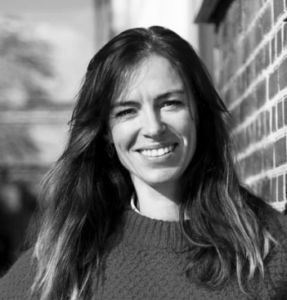
Hendrine has a unique blend of expertise in fashion and social justice. Holding a background in International Fashion Management & Design and a degree in Social and Cultural Anthropology, she brings a deep understanding of both the creative and human elements of the garment industry. With many years of experience at mulitstakeholder initiative Fair Wear, Hendrine has been at the forefront of advancing human rights in the global garment sector, guiding brands to transform their supply chains to ensure positive social impacts. Currently, Hendrine serves as a consultant specializing in Human Rights Due Diligence (HRDD) and Strategic Communications within the garment sector.
Her passion for sustainable fashion previously led her to found her own clothing brand Be Kind, centred on social entrepreneurship, longevity and local production. Through this venture, she made a tangible impact, deepened her understanding of the sector’s realities and educated consumers on making more conscious purchasing decisions.
Hendrine’s strength lies in her ability to speak the language of both businesses and NGOs, bridging the gap between the two to foster meaningful collaborations. She is dedicated to driving long-lasting change by aligning the interests of all actors within the supply chain, bringing the reality of those who make our clothes closer to those who wear them.

Throughout her working life Irina has been intrigued by finding synergies between stakeholders with different interests and viewpoints. The domain of responsible business conduct has provided her with the opportunity to look into the ways international business can operate with a human face.
After International Development Studies in Amsterdam and London, Irina started out as a project manager for World Press Photo with visual storytelling as a means to convey the beauties and horrors of the world. Then as a policy advisor for the Dutch government and the OECD, Irina got involved in crafting and promoting the normative framework for business initiated by the UN and the OECD in the mid to late 2000s. As a consultant with Berenschot she supported public sector clients with raising awareness for human rights due diligence processes and private clients with implementing them. She specialised in the right to a living wage for workers, as researcher and organiser of conferences in Berlin (2013) and Islamabad (2016) with German GIZ.
A few years ago Irina found a new home to drive these topics, in sustainable finance. First as a human rights advisor and engagement manager with the Dutch ASN Bank where she initiated the setup of the Platform Living Wage Financials. She currently works as a Senior Engagement Specialist at asset manager Robeco, as part of the Active Ownership Team, on a range of ESG-related topics.
POLICY & RESEARCH

Martin heads up Katalyst’s policy and research projects, and coordinates our work with partners.
He has more than 25 years of policy, strategy and communications experience, including 15 years working in and with the global garment industry. His background includes work in government, NGO and industry environments. He held a 2020 Policy Leader Fellowship at the European University Institute’s School of Transnational Governance. He also helped the Cornell University New Conversations Project to develop strategies to support civil society and social dialogue innovation. He previously served as Senior Policy and Research Officer at Fair Wear Foundation, where he worked with a wide range of stakeholder groups, helping to develop FWF’s Brand Performance Check system, living wage strategy, research agenda and overall strategic direction.
Martin holds a BA from Macalester College and an MSc in International Management from Royal Holloway, University of London. He is based in Amsterdam, the Netherlands
EXPERT ADVISORS
A group of experts across a range of specialist fields are helping Katalyst Initiative progress towards more effective governance solutions for value chains.

Katharine is a lecturer of public international law and human rights at Utrecht University’s Netherlands Institute of Human Rights (SIM). The focus of her research is the legal framework which applies to non-international armed conflicts, with a particular focus on intersections between international humanitarian law and international human rights law and armed non State actors. She is the founder and co-editor of the Armed Groups and International Law blog.
Her book The Accountability of Armed Groups under Human Rights Law, published by the OUP in August 2017 with a foreword by Andrew Clapham, won the Lieber Prize in 2018. She teaches human rights law, public international law and international humanitarian law. In 2019, she took part in the Westerdijk Programme designed to provide mentorship and support to talented female lecturers at Utrecht University. In July 2019, she was awarded an NWO Veni grant to carry out a research project – Dangerous Liaisons: civilian agency, armed groups and international law.
She has a LLM (summa cum laude) and PhD (cum laude) at the University of Utrecht. She is a qualified solicitor in the UK and previously worked at Norton Rose Fulbright, the Council of Churches of Sierra Leone, the International Criminal Court and the International Criminal Tribunal for the former Yugoslavia.
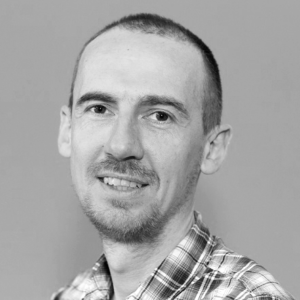
Luc Fransen is Associate Professor of International Relations at the University of Amsterdam’s Faculty of Social and Behavioural Sciences. His work investigates: a) how, why and to what effect various types of global governance of social and environmental conditions of production evolve, diffuse and interact; and b) how cross-border collaboration among civil society organizations evolves in a time of increasing state repression. He is a board member of the Political Economy and Transnational Governance (PETGOV) Research Group; and member of the Transnational Configurations, Conflict and Governance Research Group. A co-editor of the European Journal of International Relations, Luc is also the author of Corporate Social Responsibility and Global Labor Standards: Firms and Activists in the Making of Private Regulation. He has conducted research for a range of government and civil society organizations.
Current research projects include Labor standards in global supply chains; Transnational advocacy networks and the challenge of anti-NGO regulation; and Environmental sustainability, human rights and governance multiplicity in global value chains.

Jos has extensive experience in the intersection of labour rights and foreign policy. She recently retired as Senior Policy Officer at the Dutch Ministry of Foreign Affairs, where her portfolio focused on global supply chains and the garment industry. From her early career as a policy officer for the FNV trade union, where she worked on gender policy, precarious work and social security issues, she moved on to the Dutch Ministry of Social Affairs and Employment. Her posting at the Directorate of International Affairs covered sustainable public procurement, OECD supply chain guidelines and gender projects. Jos has worked intensively in garment-producing countries including Bangladesh, Turkey and Pakistan. She drove major international living wage conferences in Berlin (2013), Islamabad (2016) and Rotterdam (2019); represented the Dutch Government in the Agreement for Sustainable Textiles, and has long worked with the ILO and ILO Better Work on a range of issues, particularly living wage.

Henrik is Executive Director of Ethical Trading Initiative-Sweden. His experience covers both human rights and environmental aspects of the garment industry, and combines experience in both the industry and NGO worlds. Earlier in his career, he has worked as a verification coordinator at Fair Wear Foundation, researcher and campaigner at Fair Action Sweden, and at the Center for Labour Information Service and Training in Bangkok. His recent industry experience includes roles as sustainability and CSR manager for a pair of Swedish clothing and apparel brands, and where he was responsible for securing better working conditions in the supply chain and reducing the environmental impact of production processes.
Henrik is also an experienced researcher, holding Licentiate of Science degree in risk philosophy, theory of science and statistics from the Royal Institute of Technology, Stockholm, and is author of several peer-reviewed papers assessing the effectiveness of codes of conduct and factory audits.
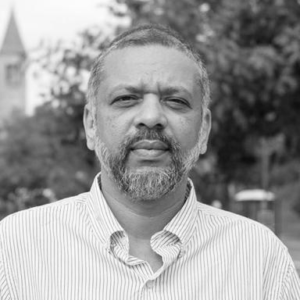
Sarosh Kuruvilla is Professor of Industrial Relations, Asian Studies and Public Affairs at Cornell University’s Industrial and Labor Relations School. His research interests focus on the linkages between national economic development strategies and national human resource and labor policies. He research on these topics, particularly skills development and workforce upgrading has informed several Asian governments. More recently, he has been doing research on labour global supply chains. As the founding Academic Director of the New Conversations Project at Cornell university, his research can be seen in his new book Private Regulation of Labor Standards in Global Supply Chains: Problems, Progress, and Prospects published in April 2021.
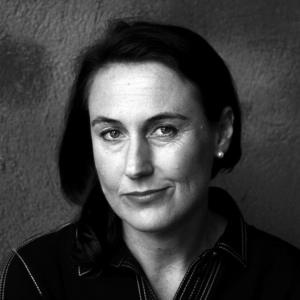
Shelley is Associate Professor and Director of the RMIT University Business and Human Rights Centre and an Australian Research Council Research Fellow. She is an expert in the regulation of informal work and labour law and in poor and middle income countries. She has undertaken empirical studies of home-workers and other informal workers in a diverse range of countries, including Bulgaria, India, Indonesia, Australia and Cambodia, and has published widely based on her findings. She has been awarded a number of large multi-country competitive grants to conduct these studies. Shelley has advised various governments about the implementation of laws to protect home-based workers, including, most recently, Thailand. Her most recent book is Living Wage: Regulatory Solutions to Informal and Precarious Work in Global Supply Chains published by Oxford University Press.

Jeroen Merk holds a PhD in International Relations from the University of Sussex, Brighton. His research interests lie at the crossroads of international relations, political economy, social movements, and the governance institutions of global industrial relations. His research program is particularly concerned with analysing the shifting nature of worker-employer relations within local, national and global (supply-chain) contexts; the role of ethical standards as embodied in codes of conduct and other voluntary instruments in regulating business practices; and the combined (but uneven) emergence of cross-border networks of NGOs and trade unions keeping transnational corporations accountable for labour rights violations. He has published on these topics in peer-reviewed journals and academic books. He is collaborating with academics from different universities on related research projects.
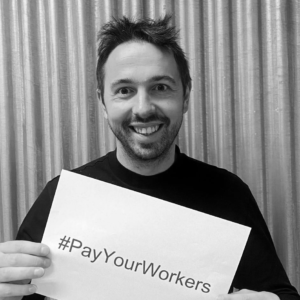
Ben Vanpeperstraete studied sociology and anthropology at the Université libre de Bruxelles, Belgium. He later worked on the intersection between labor rights, human rights due diligence and international trade, with a focus on the clothing sector. He supported global unions in their work on the legally binding Bangladesh Accord on Fire and Building Safety and contributed to the Rana Plaza, Tazreen and Ali Enterprises compensation arrangements.
He furthermore worked on EU trade policy, especially on the EU Bangladesh Sustainability Compact and the Everything but Arms Cambodia investigation.
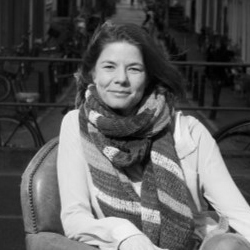
Connecting the dots, building bridges, brokering knowledge.. Whatever name you would like to give it, for over 10 years Daniëlle has been working tirelessly on finding inspiring ways of connecting people, institutions, ideas and narratives. What brings people at the table? Why that particular table and not a different one? And, what’s in it for them? Such questions have fueled Daniëlle’s work at her consultancy DBMresearch over the years, supporting government institutions, multi-stakeholder initiatives and civil society organisations. She has been involved in setting up inspiring evidence-based learning strategies for non-profits and multi-stakeholder initiatives, building on her strong expertise on the topic of Business & Human Rights and knowledge of different value chains and sectors, including the garment industry.
PARTNERS AND SUPPORTERS
Katalyst has a growing network of partner organisations and supporters:
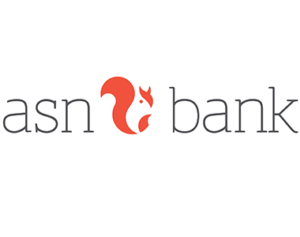
Since 1960 ASN Bank’s aim is to invest its customers’ capital in a way that contributes to a society where people are free to make their own choices without negatively effecting others. A society without poverty, with education available for all and with the availability of good housing and healthcare. To achieve this, we contribute to a better environment for present and future generations, whilst generating a healthy return on investment for our organization.
In accordance with this mission, we finance projects that contribute to a sustainable society. The finance of projects from organizations that play a social or cultural role in the community advances this mission.
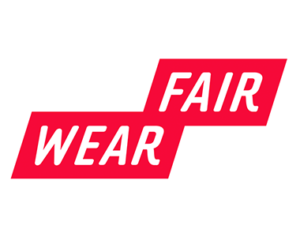
Fair Wear is an independent, non-profit organisation that works to improve conditions for workers in garment factories. Active in 15 production countries in Asia, Africa and Eastern Europe, four key activities make up the Fair Wear approach: brand performance checks, factory audits, complaints helplines and factory training sessions. A multi-stakeholder initiative, governed by trade unions, NGOs and business associations, Fair Wear has over 120 member brands. Fair Wear is a co-funder of Katalyst Initiative’s ‘Broad View’ industry mapping project.
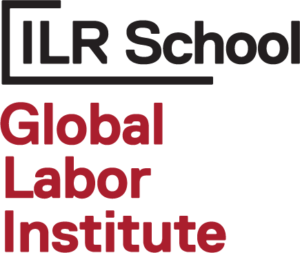
Housed in the Cornell University School of Industrial and Labor Relations, the Global Labour Institute partners with Katalyst Initiative on a range of projects.
The Global Labor Institute (GLI) – formerly the New Conversations Project – is dedicated to independent research and action that measurably improves labor conditions in global supply chains.

Good Clothes, Fair Pay is a broad-based campaign for living wage legislation in the European Union across the garment, textile and footwear sector. It is based on the European Citizens Initiative mechanism for proposing new ideas for legislation at the EU level.
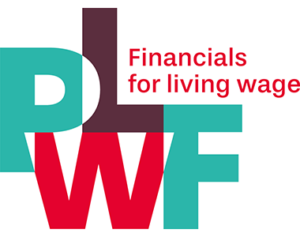
The Platform Living Wage Financials (PLWF) is an unprecedented alliance of 18 financial institutions that encourages and monitors investee companies to enable living wages and incomes in their global supply chains. As an investor coalition with over €4.3 trillion of Assets under Management (AuM) and advice, we use our influence and leverage to engage with our investee companies.
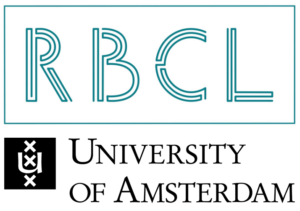
Katalyst participates in and advises on several projects based in the Responsible Business Conduct Lab, including Protecting People and Planet Through Supply Chain Legislation; The Effectiveness of Supply Chain Regulations; and Modelling the future of global supply chains in light of emerging environmental sustainability regulations.
ORGANISATIONAL INFO
Katalyst Initiative is a non-profit organisation (public good ‘stichting’) founded in 2020.
We are registered in the Netherlands (RSIN 861463262), and are recognised by the Dutch Tax Authorities as an ANBI Public Benefit Organisation. Donations to ANBI (Algemeen Nut Beogende Instelling) registered organisations may be deducted from Dutch income tax or corporate income tax.
Katalyst’s Katalyst Policy Plan 2025-26 is available, in line with ANBI requirements.
Katalyst is based at:
1031 KS Amsterdam
The Netherlands
(In line with allowances for new organisations in the Netherlands, 2020 financials are reported with our 2021 figures)

